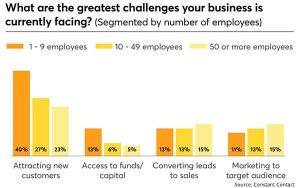Sometimes when we lift our heads up and look outside our day to day work, our roles, and our companies, we look at others. We may look at our competitors and what they do. We may look at high performing companies, and what they do. We may look at individuals and how they work.
We see others do things that are very successful and aspire to achieve the same success they do. We are tempted to copy or emulate what they do, thinking, “If they are that successful, if we did the same things, we will be successful, as well.”
99% of the time, it’s a failing strategy. In the very best case, we may see some improvement, but we will never reach the levels of performance of those we copy. Why—because they are always adapting, innovating, changing and we are relegated to playing catch up. Secondarily, we will never implement as well as they, because we don’t have the depth of understanding or nuance to understand how to make it work. (Stated differently, you have to do the work).
Most of the time, copying another organization or someone else is a dramatic failure. In copying, we see things after the fact, we see things that are visible and that everyone else sees. We lack the understanding of why an organization has done these things, what they had to learn to make it successful, where they failed and how they took corrective action. We haven’t “done the work,” so we don’t understand how to be successful. We haven’t done the work so we don’t know the risks, errors, challenges.
This doesn’t mean we can’t learn by looking at what others do, but we are more successful by not copying, but rather thinking of what can we extract, adapt, change to make it work for us? What can we learn, to avoid making the same mistakes? What can we learn that may inspire us to have completely new ideas? Stated differently, we have to do the work.
In selling, imitation means we have no value to offer. If we are copying a competitor, we can never achieve the value they create. We simply emulate them. Copying clearly communicates to the customer that we don’t care–we don’t care about them, we don’t care enough about our own offerings and company to do the work that creates differentiated value, greater than anything else the customer considers.
Copying is simply laziness and sloppy thinking.
Imitation and copying is a losing strategy, why waste the time?
Business & Finance Articles on Business 2 Community
(59)








